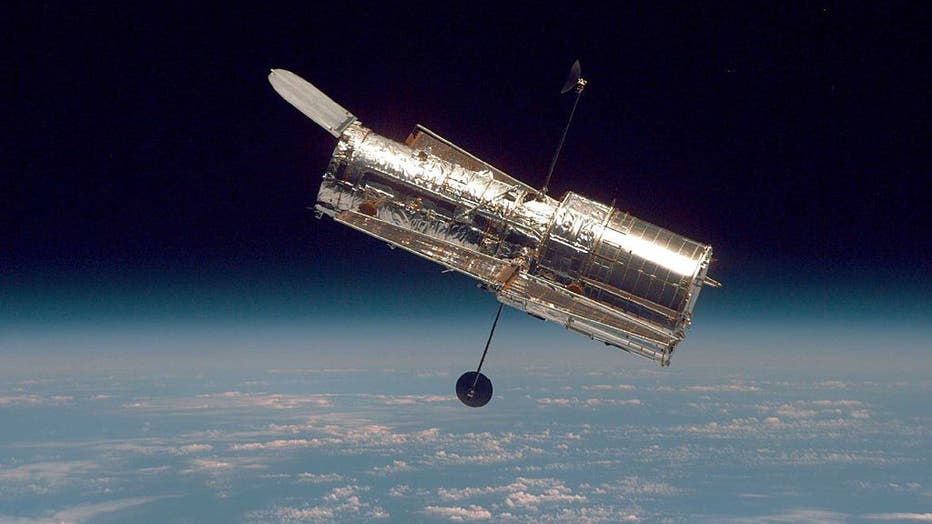NASA has a new game plan for Hubble Space Telescope to resume science observations
NASA talks Earth Day with LiveNOW from FOX
Monday is Earth Day and LiveNOW from FOX host Jeane Franseen spoke with NASA on efforts they're doing to help the environment.
NASA’s Hubble Space Telescope teams will transition the telescope to operating using one gyroscope instead of three after repeated issues with faulty data halted science operations.
NASA said the 34-year-old space telescope entered safe mode on May 24 to protect the spacecraft because of an ongoing gyroscope issue. The telescope has three gyroscopes in its system that keep Hubble pointed in the right direction. The space agency said one of its three gyros gave faulty telemetry readings, prompting the spacecraft to enter safe mode and suspend science operations.
The space agency said Hubble remains in good health, and its instruments are stable.
HUBBLE TELESCOPE PINPOINTS LIGHTS OF GALACTIC BAR 43 MILLION LIGHT-YEARS FROM EARTH
Issues with Hubble’s gyros have halted science operations previously, most recently in November 2023.
After the latest problem, NASA officials said the team would begin transitioning the spacecraft to operating in one gyro mode.
Patrick Crouse, Hubble project manager with NASA’s Goddard Space Flight Center, told reporters on Tuesday that this change will "take a little bit of time" and that science operations could resume again in late June.
"It is the best mode to go forward to prolong Hubble’s life," Crouse said.

In this handout from the National Aeronautical Space Administration (NASA), the Hubble Space Telescope drifts through space in a picture taken from the Space Shuttle Discovery during Hubble's second servicing mission in 1997. (Photo by NASA via Getty Images)
The changes to using only one gyroscope will impact Hubble’s science operations and result in a 12% reduction in efficiency. Typically, Hubble orbits 85 times a week, which will drop to 74 orbits.
"We do not see Hubble as being on its last leg," Crouse said. "We think it’s a very capable observatory."
No boost help for Hubble, yet
The space agency has been examining possibilities for Hubble as Earth’s gravity slowly pulls the spacecraft toward the planet. Hubble orbits Earth about 320 miles above the surface and is expected to be pulled down to Earth in the 2030s.
Hubble was designed for astronauts to repair and upgrade in orbit, but a NASA crew has not completed a service mission since 2009.
Billionaire Jared Isaacman has offered to fund a mission using a SpaceX Dragon spacecraft to reboost and repair the telescope further into space, extending its lifespan.
Isaacman is funding three other private flights with SpaceX, including the upcoming Polaris Dawn mission and its first private spacewalk.
Mark Clampin, director of the astrophysics division at NASA’s Science Mission Directorate, said after a review and risk analysis, the space agency is not taking Isaacman up on his offer – at least not in the near future.
Even without the reboost help, Clampin said Hubble is still expected to continue producing science through the rest of the decade.
GET UPDATES ON THIS STORY AT FOXWEATHER.COM

